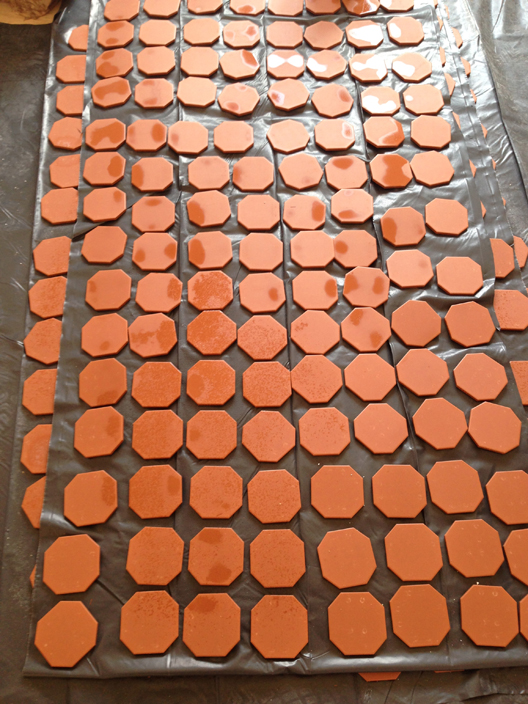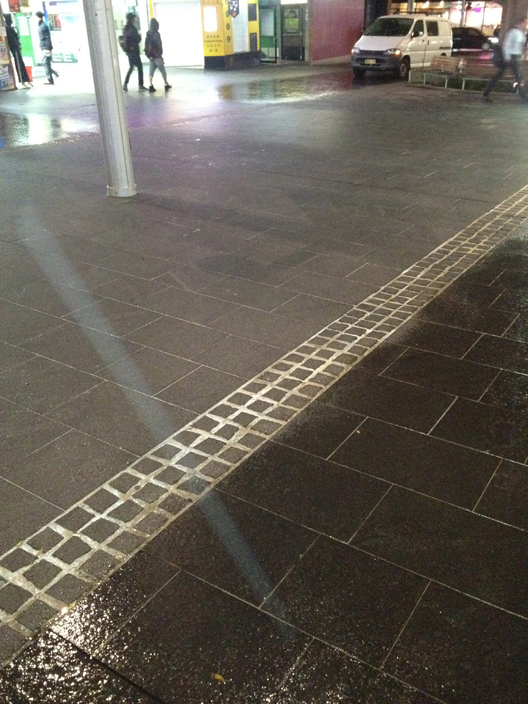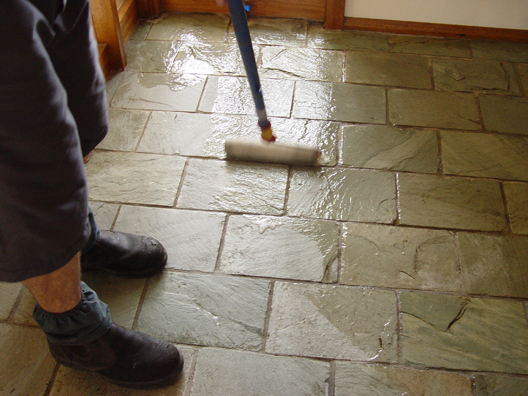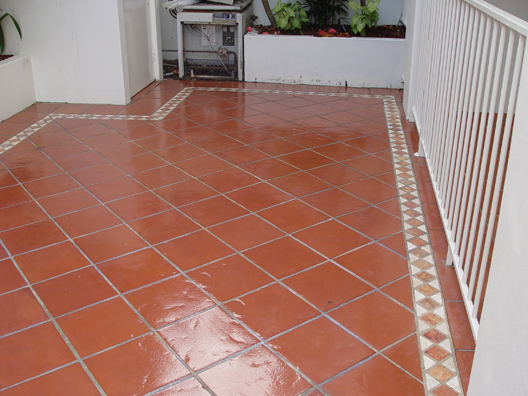Penetrating seals
All stone is porous, some more than others. For most stone—especially very porous stones like hone-finished limestone or certain granites—the application of a quality impregnating sealer is highly recommended.
The application of an impregnating sealer to highly-polished marble and travertine, or polished high-density granites, may not be necessary—but when in doubt, consider this: it doesn’t hurt to have it sealed. If it turns out that sealing the stone does, in fact, prevent some staining, you’ve saved yourself the cost of a stain removal service.
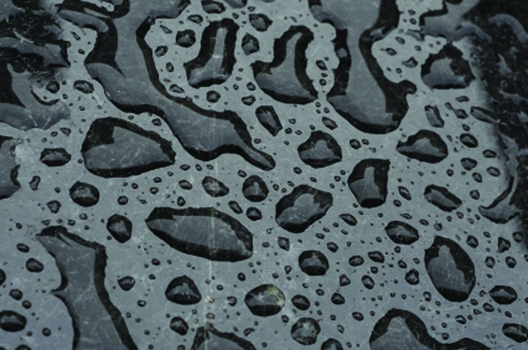
How many applications of sealer are needed?
For some stones that are more porous than others, one application of impregnator/sealer may not be enough. But how will you know?
On granites that need sealing, at least two applications are recommended. Very porous granites, sandstone, quartzite, etc., may require three or more applications. When sealer can no longer be absorbed by the stone, the stone is adequately sealed.
How long will it last?
There is no absolute rule of thumb when it comes to the durability of any sealer. Generally speaking, most quality impregnating sealers when applied in an interior setting will last 5-7 years or more. Environment plays a big role. Stones exposed to intense heat or direct sunlight will probably need to be re-sealed more often.
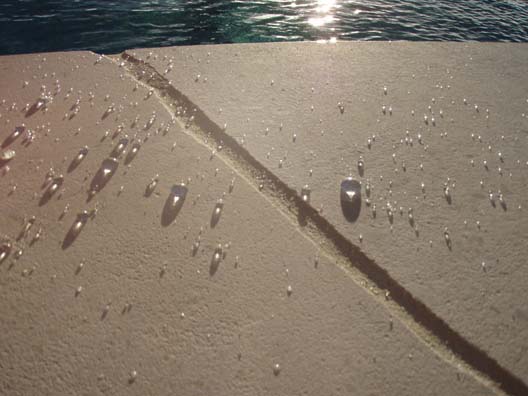
When is it time to reseal?
To find out if your stone is perfectly sealed, pour some water on it and wait for approximately half an hour, then wipe it dry. If the surface of the stone did not darken, it means that the stone is still perfectly sealed. Be sure to test various areas, especially high traffic areas that get more use and abuse.
What does a sealer do?
Contrary to what your perception may be when you hear the word sealer, most sealers for stone are below-surface products and will not alter in any way the original finish produced by the factory. Nor will provide protection to the surface of the stone. They will only go inside the stone by being absorbed by it (assuming that the stone is porous enough to allow this to happen) and will clog its pores, thus reducing its natural absorbency rate. This will help prevent accidental spills of possible staining agents from being absorbed by the stone.
Sealers for stones, which are below-surface, penetrating-type sealers—better referred to as impregnators—are designed to do one thing and one thing only: clog the pores of the stone to inhibit staining agents from being absorbed by it.
Colour enhancing sealing
While impregnating sealers will not alter the appearance of your stone, a colour-enhancing (impregnating) sealer will protect the stone whilst bringing out its natural colours, giving it a wet (i.e. darker, not glossy) look. It will at the same time provide good protection from water- based staining. Colour enhancing sealers are typically used on tumbled marble, low-honed limestone and travertine, or honed (black) granite, etc.
Topical Seals
Pre-Sealing
Pre-sealing of new tiles can be done to protect them during the laying process and to make clean up easier. It should be remembered pre-sealing is exactly that and a quality seal should be applied after laying to ensure the floor is ready for use.
